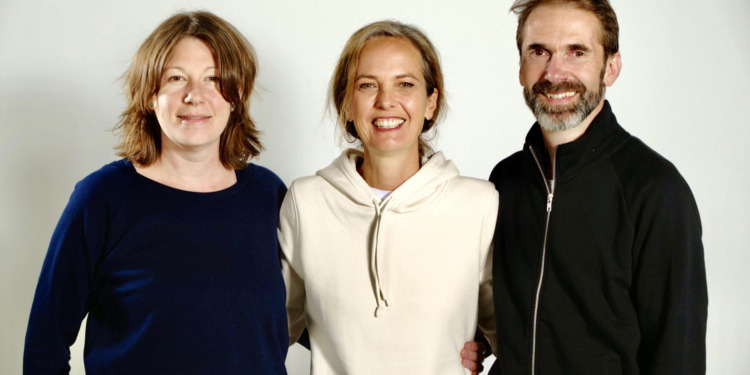Sascha Hümbeli is the founder of Torland Jeans, a sustainable clothing company from Vienna specializing in organic and ethical denim. We spoke to him about the painstaking, but highly rewarding, process of becoming a GOTS certified company and why good denim is about more than design and fit, but about dignifying every person and process along an incredibly complex value chain.
What was the inspiration for starting your own denim company?
I founded the company four years ago. I’m 53 years old, I’ve had several stages in my life before reaching this point. I studied environmental science but never worked in this area because there weren’t any jobs. It was in the late 80s and everybody thought the environment was important, so they created this new study. There were a lot of students but there were no jobs around. In the end, I found myself in the financial industry, where I had a good career in insurance, but when I reached 40 I thought, this isn’t all I want to do with my life.
I also had the aim to start my own business and had always wanted to be involved in making real, tangible products, so I thought about it and somewhere along the line I got the idea to create a denim brand. I’ve always loved fashion but never had a connection to the fashion industry. I found the idea compelling and thought it would be a good opportunity to apply my knowledge in environmental science.

Your jeans have a GOTS certification – can you tell us what that means and what the process is for getting it?
From the beginning, I knew I wanted to build the foundations for an organic denim brand, but you have to have all your things in place to comply with the very rigorous standards of the GOTS certification. After two or three years, I found myself ready to apply for it. I contacted the control union and they sent me all the requirements and standards we needed to implement. That was at the beginning of 2020, the process was long and very difficult.
GOTS looks at both ecological and ethical aspects of production. It’s not only that the material is organic, they also want to see that its production is not harmful to the planet or to people, and that your workers are offered a living wage and social security. This is why GOTS is such a demanding standard, but I think it’s the most valuable label for organic clothing today.
We had to overhaul large parts of our business, we needed to implement new storage rooms, for example, to separate GOTS products from non-certified products because they are not allowed to even touch. We needed to implement a new ERP system, because you need to be able to trace every single piece, from sourcing to the end user. We also had to teach our employees how to deal with GOTS products, they needed to learn how to source the raw material for production, how to clean it and store it.
After you have the certification, it’s easier to maintain. The control union comes at least once a year to inspect your systems, look at your paperwork, and interview your employees. They do this for every step in the value chain, from the farmers that grow your cotton, to the processing facilities, and the factory where the jeans are made.
Building a sustainable supply chain is a system of moving parts, so how did you yourselves get started?
We said to ourselves that we will start with the material, the denim, which is GOTS certified. Since we don’t make the fabric ourselves, we needed to just trust the supplier. This is why a certification is so valuable, because we use it ourselves to determine what materials to purchase in order to meet certain standards. From this point on, we have direct control over the entire process.

Your jeans are produced in a sustainable manufacturer in Turkey that also values ethical labour. How did you find out about them and how would you describe your partnership?
I traveled around Europe and visited a lot of production companies to get a sense of how they produced. In the end we went with a Turkish company because they have a long history of quality denim production. I would say it’s the best you can find close to Europe, and the prices are quite affordable. I found this company in Istanbul and started working with them, they had ethical certifications but not GOTS, so I had to change manufacturer after I decided to pursue the GOTS certification.
I was lucky. At the end of 2019, I got to know a Turkish man who grew up in Germany. He founded a factory in Izmir that was one of the first GOTS certified companies in Turkey. We became business partners and friends. It was a tough time though, because the Covid pandemic had just started, so I wasn’t able to visit the production in Turkey, but I have been twice since and have a very good impression of this company. Since I know the founder personally and share his values, I didn’t expect anything less. We have a very good relationship today, we communicate on a daily basis.
Can you talk us through the design process?
The first two years I created all the prototypes with a well known specialist here in Vienna, she teaches at a fashion school and is an expert pattern maker. I would bring her my ideas and she brought them to life! Today the design process happens together with the Turkish producer, because they also have design specialists and just know the product so well. We exchange our ideas, I send them sketches and samples and tell them what I want, and they implement it. It’s a very collaborative process.
What makes a good pair of jeans?
Durability, but also the cut. They should fit well. It’s not possible to have the perfect cut for everyone, bodies are so different, that’s why there are so many different kinds of jeans. But our aim was to create something that fit most people well. Of course you need to make some compromises, but we wanted to create something that suits as many people as possible. The third important aspect is that it’s ecological. For you to feel good in a piece of clothing, it’s important you know that no one suffered making it.
Editor’s Note: The opinions expressed here by Impakter.com columnists are their own, not those of Impakter.com. — In the Featured Photo: The Torland team, from left to right: Claudia Widlhofer (Store Management), Susanne Holthuizen (Marketing), Sascha Hümbeli (Managing Director). Featured Photo Credit: Sascha Hümbeli










